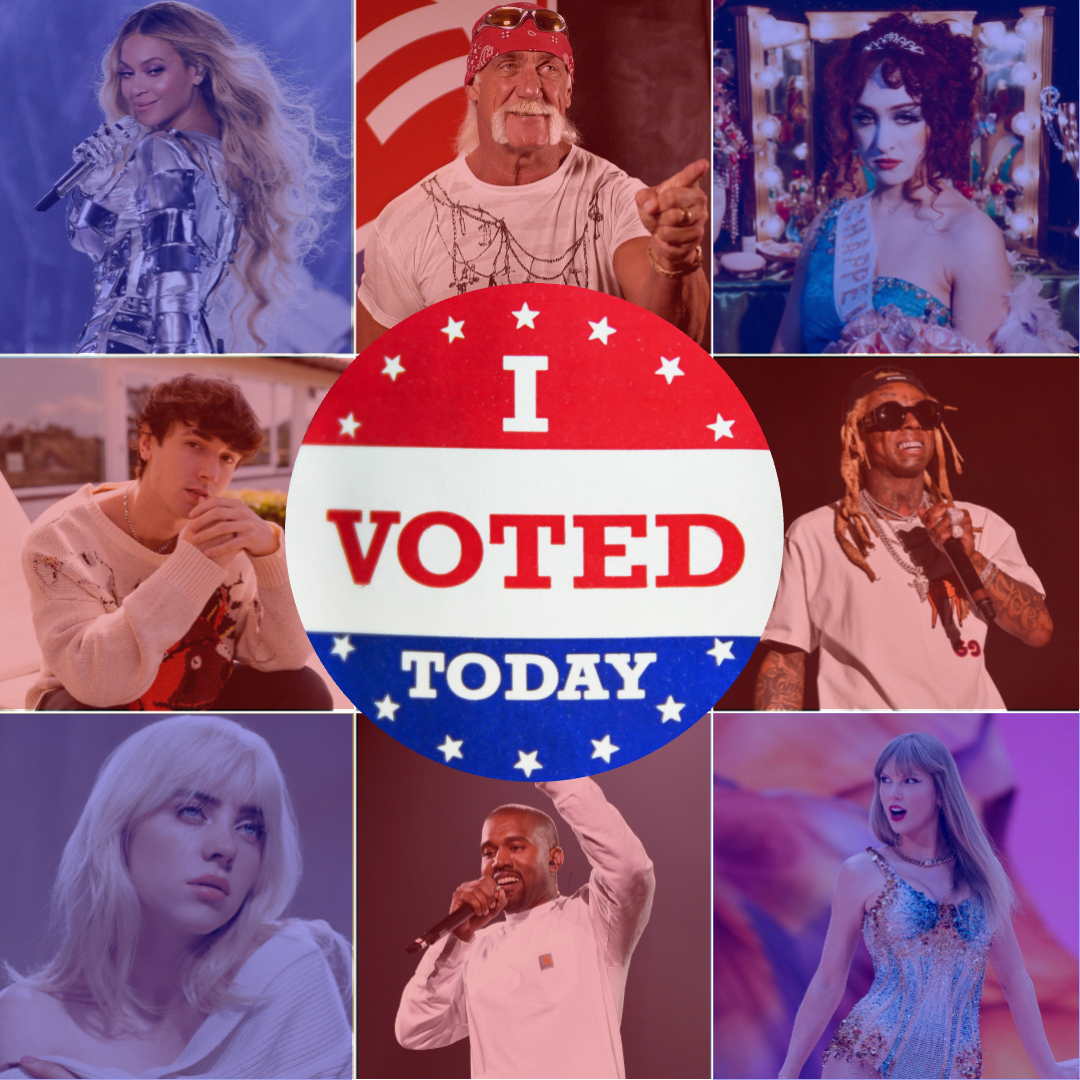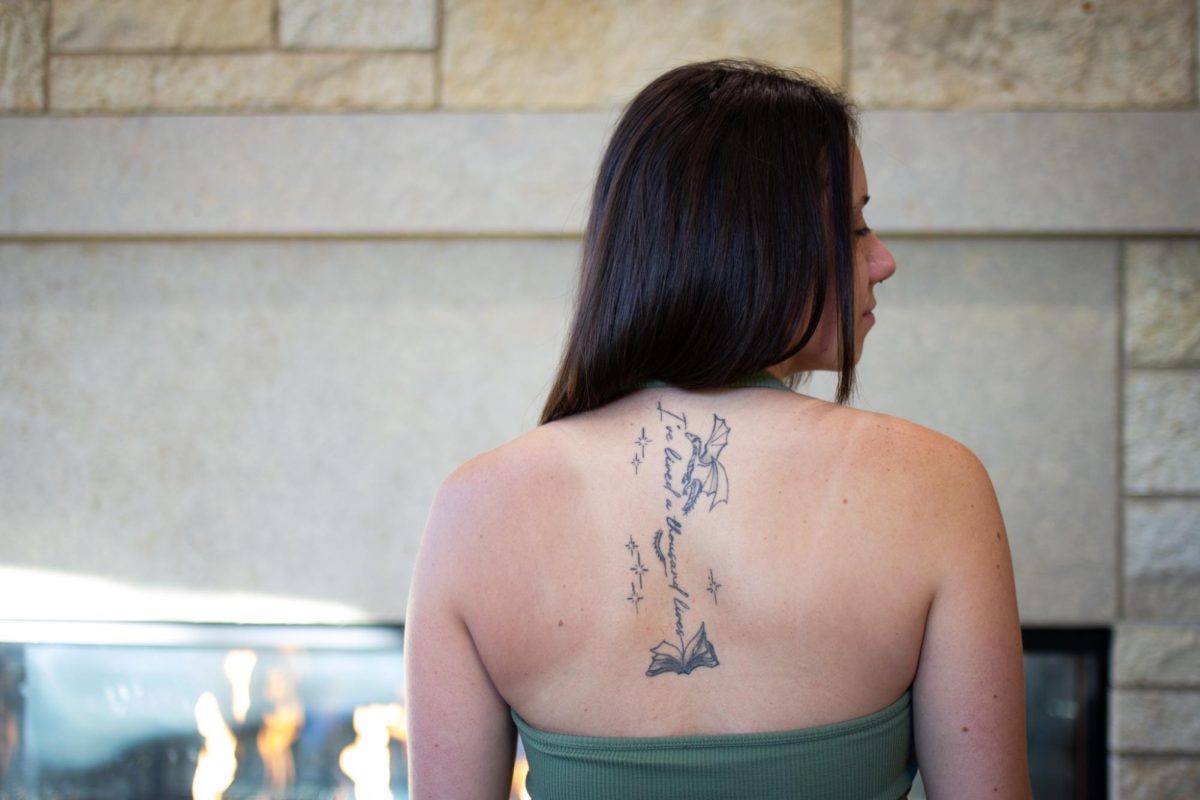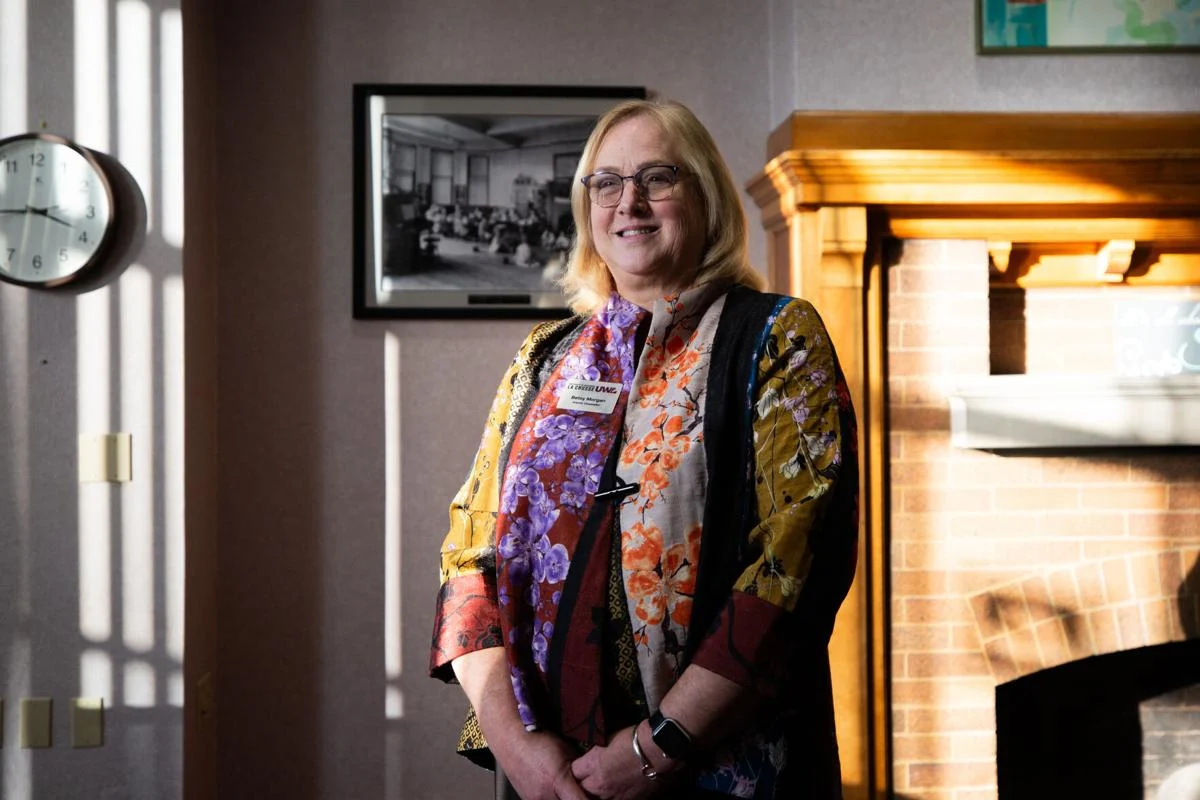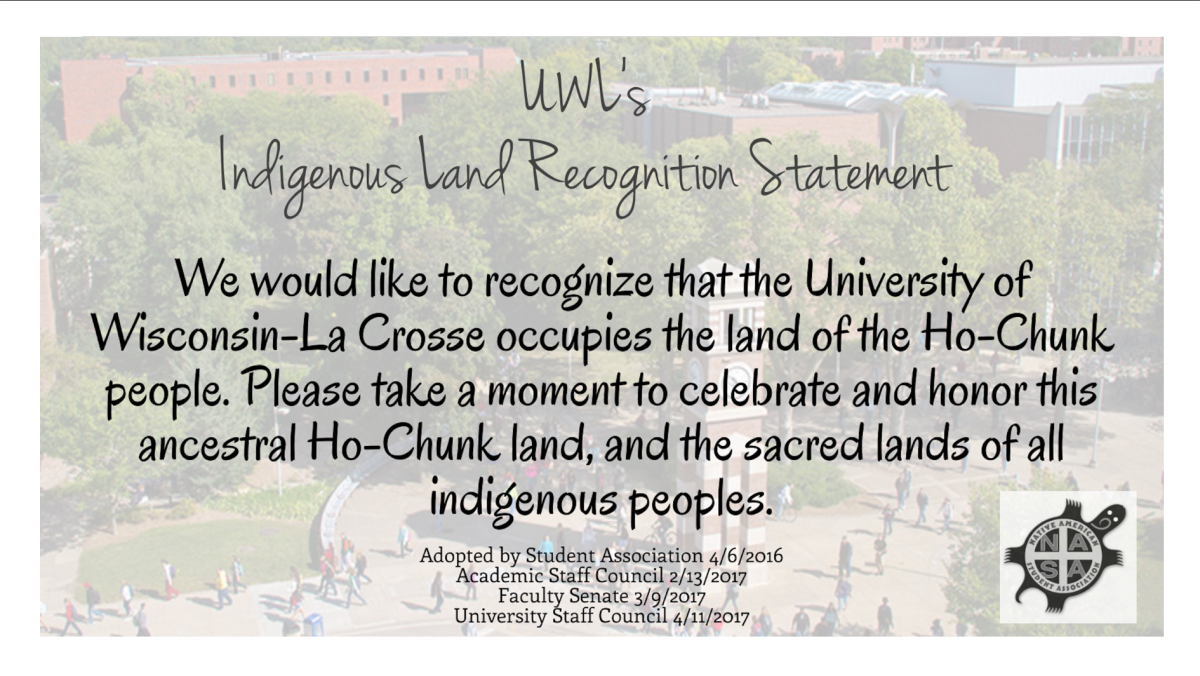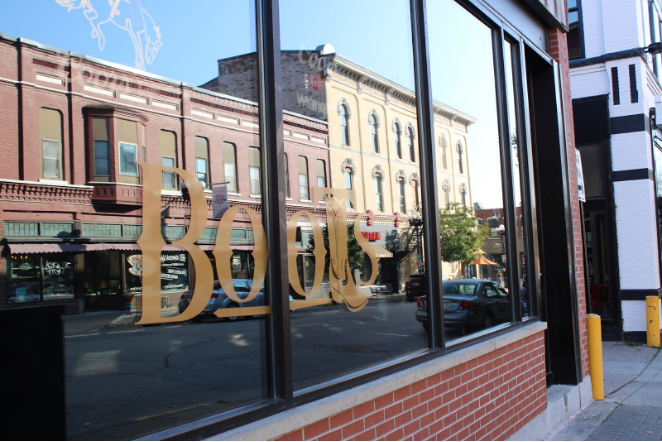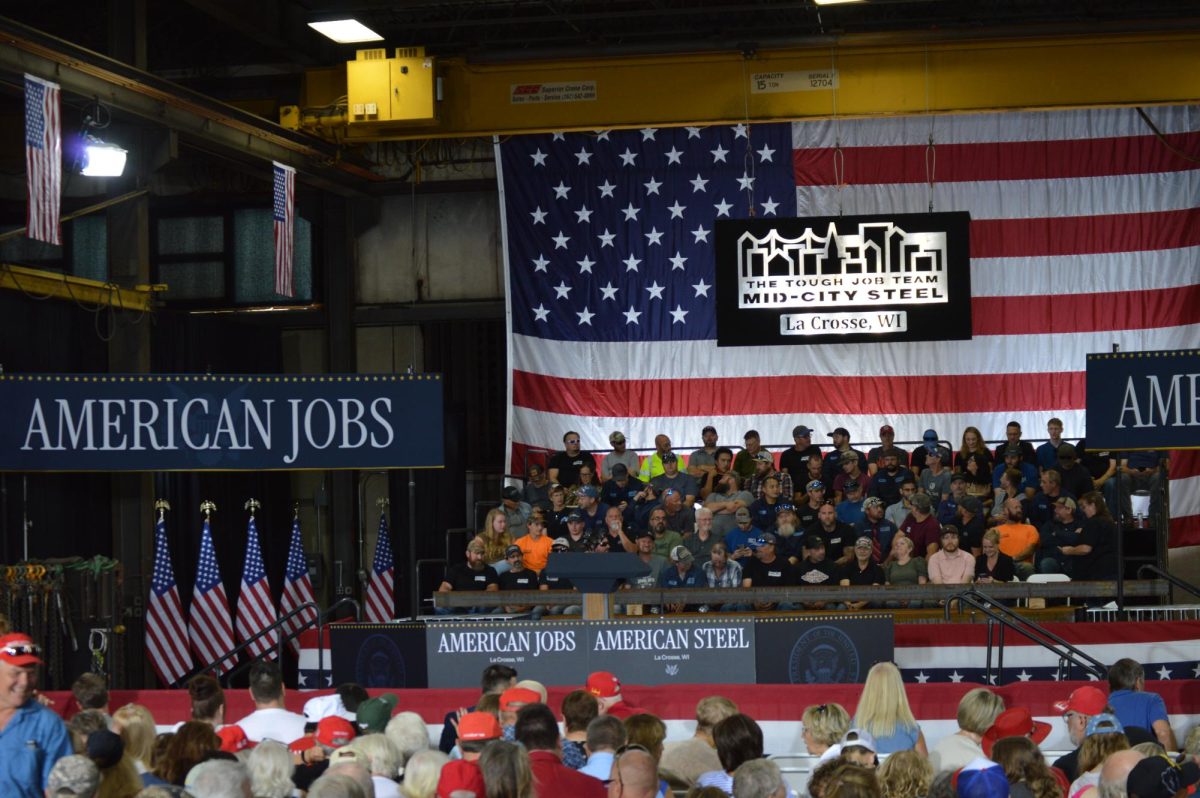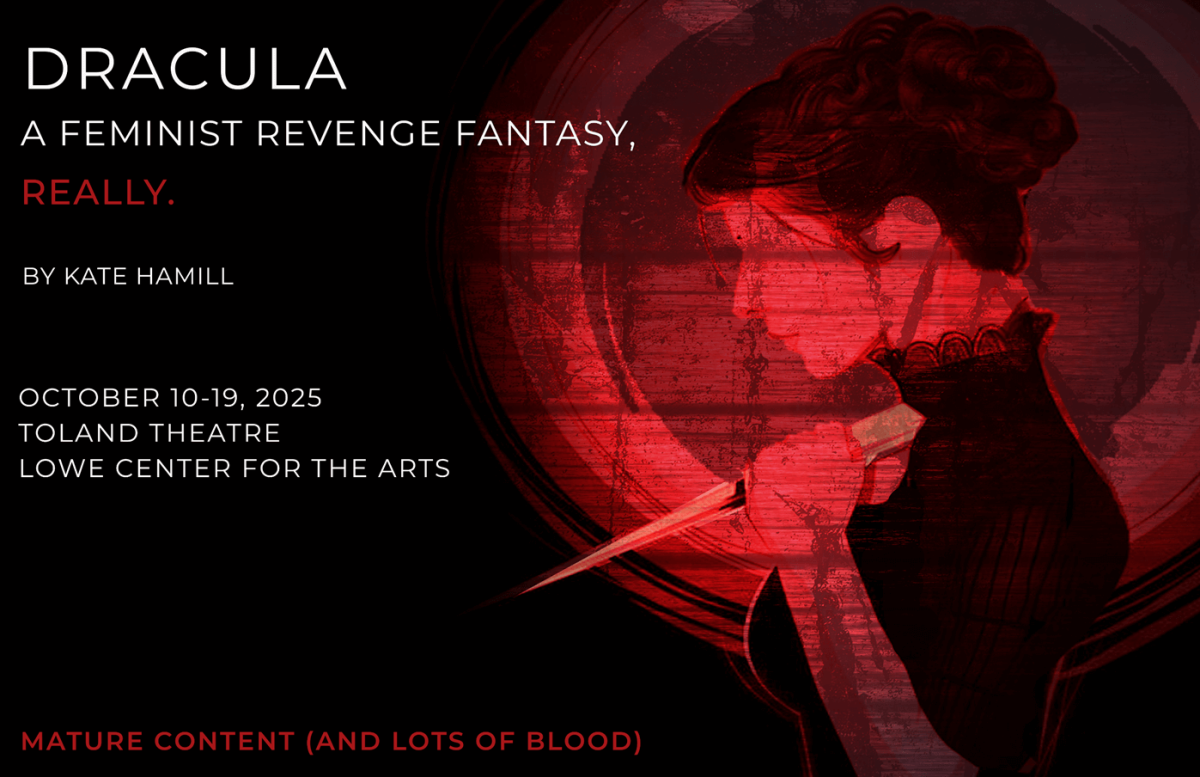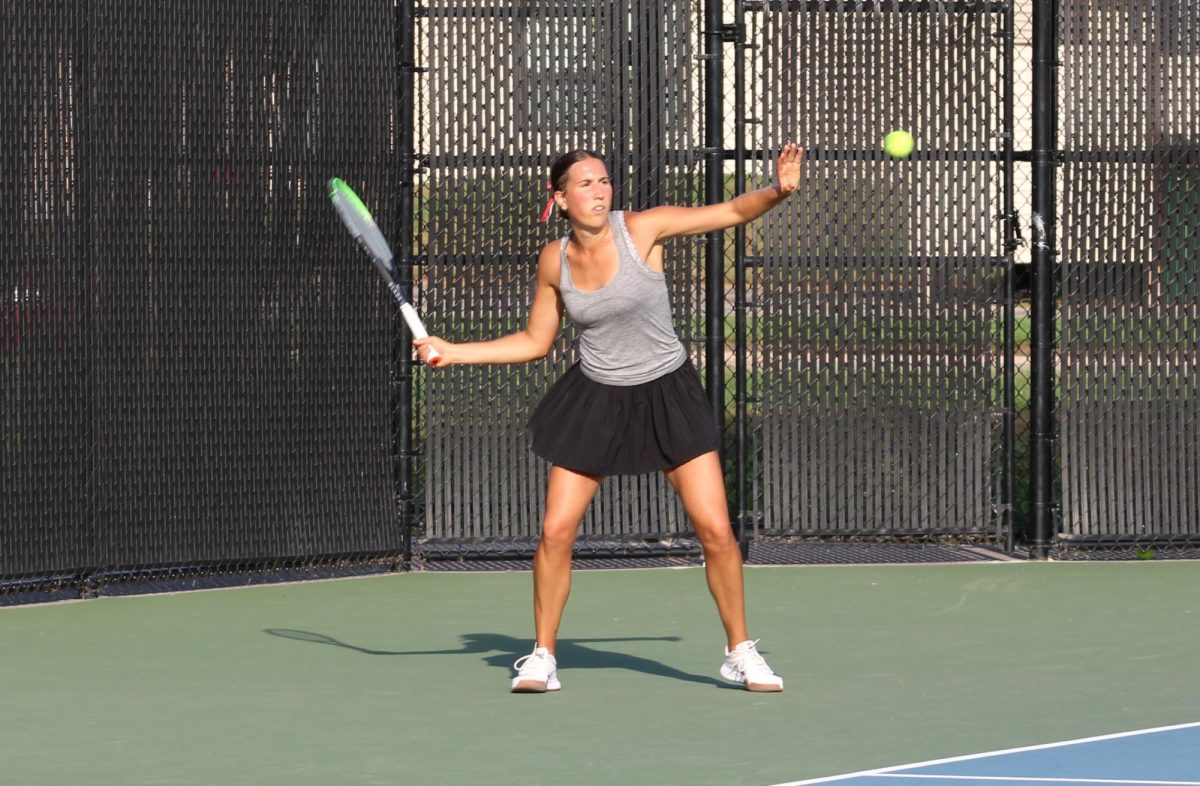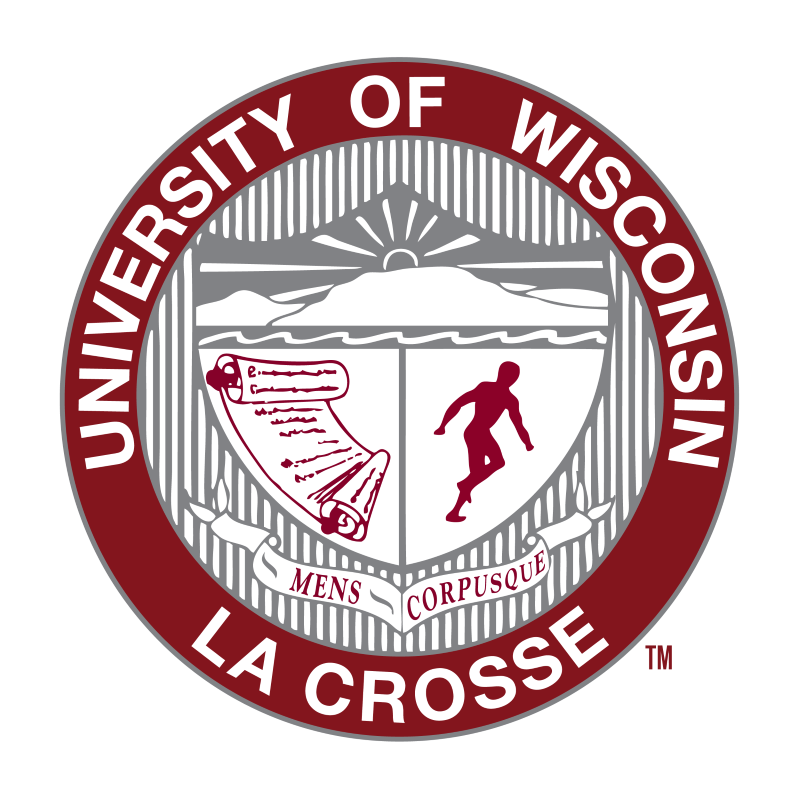In anticipation of the 2024 presidential election on Nov. 5, candidates Kamala Harris and Donald Trump have continued to battle for the support of a key demographic–young Americans. The two have turned to influential public figures like Elon Musk and current pop culture icons like Taylor Swift for their money, loyal fans and endorsements.
An endorsement involves a public and unambiguous declaration of support for a political candidate. By this definition if a celebrity simply states who they intend to vote for, it can be considered an endorsement.
For many young voters, Taylor Swift is one of the most prominent celebrities who has backed political candidates. In 2020, Swift proudly announced and defended her intentions to vote for Joe Biden as President; almost four years later, she did the same for Biden’s current Vice President Harris.
Just minutes after the Harris-Trump debate on Sept. 10, the pop singer made a post to her Instagram where she wrote, “I will be casting my vote for Kamala Harris and Tim Walz in the 2024 Presidential Election.”
She explained, “I’m voting for @kamalaharris because she fights for the rights and causes I believe need a warrior to champion them. I think she is a steady-handed, gifted leader and I believe we can accomplish so much more in this country if we are led by calm and not chaos.”
She then encouraged her 283 million followers to do their research, register and vote.
“I’ve done my research, and I’ve made my choice. Your research is all yours to do, and the choice is yours to make,” Swift wrote.
Genevieve Frounfelker, a fourth-year student at the University of Wisconsin-La Crosse, referenced these statements. She said, “I know a girl who’s a huge Taylor Swift fan … She stopped posting about Taylor for like two weeks”
“She’s losing some of her fans because of her expressing her views on politics,” echoed Uranchimeg Erdenebat, a third-year student at UWL.
Following the post, Swift took to her Instagram story with a link to Vote.org, a website that provides information on elections and voter registration. This link was visited through her story 405,999 times during the 24 hours it was available through the post.
“In today’s day and age, everyone’s focused on technology, and everyone will see their posts,” said UWL second-year student, Mason Lemke, regarding celebrities who speak on politics via their social media. “If celebrities do post … people will interact with the post and [it will] get them thinking about who they’re voting for.”
Regardless of political leanings, when individuals with large followings post voter information and encouragement, their audience is more likely to participate in elections. Young voters are more excited to show up to the polls, or at least engage in political discourse, if its perceived as the “cool” thing to do.
Charlotte Aitchison, known professionally as Charli XCX, did not originally intend to outright endorse Vice President Kamala Harris in her viral “Kamala IS Brat” tweet. Regardless, she embraced the attention it brought to both the election and the shared values between her and Harris, such as women’s reproductive rights and the protection of democracy.
“I’m happy to help prevent democracy from failing forever,” Aitchison said.
Following the cautious endorsement, the Harris campaign’s X account was reworked to be “Brat” themed in reference to Charli XCX’s album. As the Harris campaign labeled their candidate a staple of “Brat Summer”, the green-apple-colored theme became integral in efforts to win over young voters.
LGBTQ+ pop singer, Chappell Roan wasn’t ready to profoundly endorse a candidate. On TikTok, she expressed frustrations of feeling pressured to directly tell her fans who she intends to vote for. She said she “despises Trump” but sees issues with the left as well, then assured her fans that she plans to cast her vote for Kamala Harris.
Chappell Roan reminded viewers to be skeptical of political statements from celebrities; “If someone is publicly endorsing a political figure, that doesn’t even mean that they’re gonna … vote for them,” she said.
“Vote for who, in your mind, is the best option for what we have right now because it’s all we can do,” she continued.
Despite certain celebrities having established a separation from Trump’s politics, other right-leaning minds in the industry have proudly stood behind him.
The support of tech billionaire Elon Musk has given Trump a number of resources to reach voters, as well as an abundance of campaign money. Musk publicly endorsed the former president after the assassination attempt against Trump on July 13, but has contributed to his campaign even before the incident.
In May of this year, Musk launched American PAC, a political action committee dedicated to getting Trump back into office and upholding hard conservative values. So far, Musk has donated over $70 million to Trump’s campaign through his American PAC.
On Saturday, Oct. 19, Musk announced that he would give $1 million every day in the lead-up to the election to a random selectee who signs his PAC’s petition supporting the First and Second Amendments. However, the $1 million handout is only available to individuals in swing states that have a significant impact on the results of elections, such as Wisconsin, and it requires that those who sign the petition register to vote.
It is against the law in the U.S. to pay an individual in return for a vote or to convince them to vote, even if it isn’t for a specific candidate. This giveaway slips through a loophole, since it is framed as a reward for the participant’s signature on the petition, but ultimately offers a reward for swing state voters to vote within Musk’s wishes.
The Republican candidate has even been backed by influencers such as Bryce Hall, a TikTok creator with 24 million followers, and Jake Paul, a YouTuber with 2o.8 million subscribers. Hall was brought onstage while he wore a “MAGA” hat to speak at a Trump rally held in Las Vegas on Sept. 15.
“We need Trump back really bad! Make America great again,” Hall said while he spoke to the rally crowd.
Paul has voiced his concerns about what he theorizes would happen in the case that Trump does not win the election. These concerns include the end of freedom of speech, the fall of America and an influx of undocumented immigrants in the country.
Celebrities and political icons are similarly entangled in popular culture, but do these attempts to appeal to a younger audience work? UWL students are conflicted.
Samantha Vetter, a second-year student at UWL, believes celebrity endorsements do add a persuasion factor for young voters, but not necessarily due to the endorser’s fame.
“When I think of celebrities endorsing specific candidates, I don’t think that it’s so much of convincing people to vote for [that candidate], as much as it is … education. For somebody who’s on the fence, then that would potentially be more persuasive,” said Vetter.
Frounfelker said she believes endorsements have the potential to harm the celebrity more than competing politicians.
“I feel like when you support a famous person, you’ve been supporting them for reasons outside of their political views and then when their political views get brought into it, then that’s when there’s some controversy,” she said.
To register to vote, check your registration status or find your polling place, go to myvote.wi.gov (non-Wisconsin residents go to vote.org) to find all the information you need to vote on Tuesday, Nov. 5.

